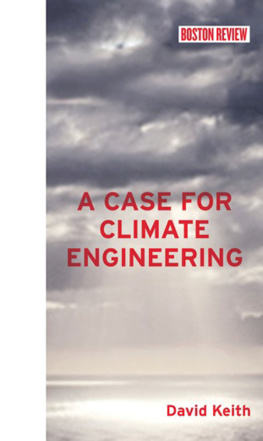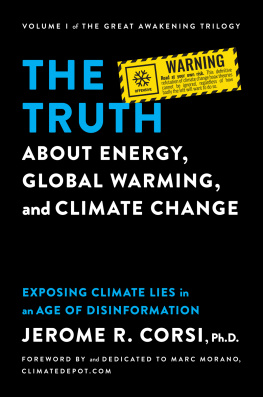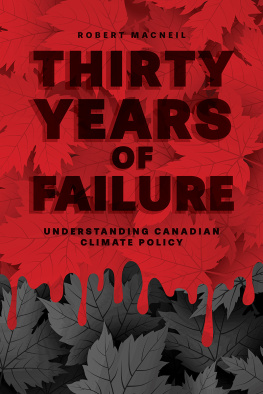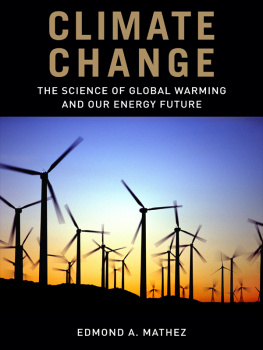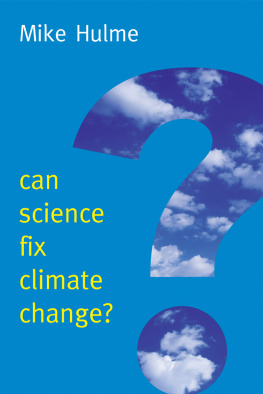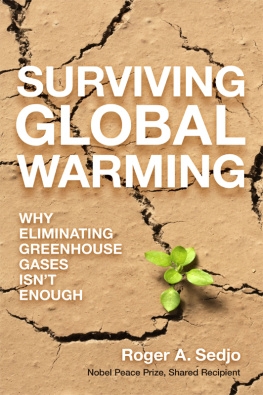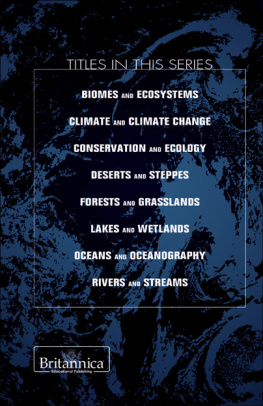A Case for Climate Engineering
A Case for Climate Engineering
David Keith
A Boston Review Book
THE MIT PRESS Cambridge, Mass. London, England
2013 Massachusetts Institute of Technology
All rights reserved. No part of this book may be reproduced in any form by any electronic or mechanical means (including photocopying, recording, or information storage and retrieval) without permission in writing from the publisher.
Library of Congress Cataloging-in-Publication Data
Keith, David W.
A case for climate engineering / David Keith.
p. cm. (Boston review books)
Includes bibliographical references.
ISBN 978-0-262-01982-8 (hardcover : alk. paper)
ISBN 978-0-262-31779-5 (retail e-book)
1. Climate change mitigation. 2. Global warmingPrevention. 3. Environmental engineering. 4. Sulfuric acidEnvironmental aspects. 5. Environmental geotechnology. 6. Environmental policy. I. Title.
QC903.K45 2013
551.68dc23
2013027459
10 9 8 7 6 5 4 3
For Alex and Sarah,
my best hope for the future
Preface
It is possible to cool the planet by injecting reflective particles of sulfuric acid into the upper atmosphere where they would scatter a tiny fraction of incoming sunlight back to space, creating a thin sunshade for the ground beneath. To say that its possible understates the case: it is cheap and technically easy. The specialized aircraft and dispersal systems required to get started could be deployed in a few years for the price of a Hollywood blockbuster.
I dont advocate such a quick-and-dirty start to climate engineering, nor do I expect any such sudden action, but the underlying science is sound and the technological developments are real. This single technology could increase the productivity of ecosystems across the planet and stop global warming; it could increase crop yields, particularly those in the hottest and poorest parts of the world. It is hyperbolic but not inaccurate to call it a cheap tool that could green the world.
Solar geoengineering is a set of emerging technologies to manipulate the climate. These technologies could partially counteract climate change caused by the gradual accumulation of carbon dioxide. Deliberately adding one pollutant to temporarily counter another is a brutally ugly technical fix, yet that is the essence of the suggestion that sulfur be injected into the stratosphere to limit the damage caused by the carbon weve pumped into the air.
Solar geoengineering is an extraordinarily powerful tool. But it is also dangerous. It entails novel environmental risks. And, like climate change itself, its effects are unequal, so even if it makes many farmers better off, others will be worse off. It is so cheap that almost any nation could afford to alter the earths climate, a fact that may accelerate the shifting balance of global power, raising security concerns that could, in the worst case, lead to war. If misused, geoengineering could drive extraordinarily rapid climate change, imperiling global food supply. In the long run, stable control of geoengineering may require new forms of global governance and may prove as disruptive to the political order of the 21st century as nuclear weapons were for the 20th.
Many people feel a visceral sense of repugnance on first hearing about geoengineering. For some, the repugnance crystallizes into moral outrage against the very idea that the topic is being discussed; for others, exposure to debate about geoengineering brings with it an appreciation of the hard choices at its roots and an understanding that there are credible arguments for and against. That intuitive revulsion strikes me as healthy; our gadget-obsessed culture is all too easily drawn to a shiny new tech fix. A narrow focus on a technologys power too easily blinds us to its risks.
Its tempting to wish climate change away by denying the science or by asserting that a quick shift to new clean energy sources provides an easy way out. But there is no magic bullet. We cannot make sound decisions by supposing the world is as we wish it were: the science of climate risk is solid, and the inertia of the carbon cycle combined with that of the worlds economy mean that efforts to cut emissions can only moderate (but not reverse) climate change over this century.
As with the capacity to engineer our own genome, humanity is rapidly developing the capacity to engineer the planetary environment. Geoengineerings powerful potential demands a broad debate that must include not only credible arguments for and against such an intervention, but also, as with genetic engineering, an appreciation of the large questions it raises about nature and technology on a planetary scale.
I myself have concluded that it makes sense to move with deliberate haste toward deployment of geoengineering. You may well reach a different conclusion. My goal is simply to convince you that its a hard choice.
* * *
In this book I attempt a synoptic view of solar geoengineering for educated non-specialists who are willing to work their way through some complex arguments. I am not a disinterested bystander. Every authors story is shaped by his or her biases. The remainder of this preface discloses some of mine.
Wilderness has shaped my life. From weekend canoe trips to long solo ski expeditions in the high Arctic, I am fortunate to have spent about a year of my life traveling in the big wilds far from roads. My thinking was shaped by a family interest in environmental protection; my father played an early role in the science and regulation of DDT, and his brother helped lead the creation of birding as a social activity separate from scientific ornithology. I am an oddball environmentalist: a bit of a liberal redneck perhaps, as I have taken part in Earth First! actions and Christmas bird counts, yet I have a freezer filled with last falls mule deer. I am also a tinkerer and a technophile. From lucking into a job at a top laser physics lab in high school, to teaching myself oxy-acetylene welding as I rebuilt the rusted frame of my first car, and then winning a prize for the best doctorate in experimental physics at M.I.T., I have always loved getting my hands dirty with hardware. Turning away from physics because it did not seem to engage real-world problems, I started to work in climate and energy before the end of graduate school. In 1989 I stumbled into geoengineering. I was drawn in by the lack of high-quality analysis of either the technology or the policy implications, a lack that seemed odd given the potential importance of geoengineering to the climates future.
I have worked on this topic for most of my academic career. While my academic writing aims at objectivity and dispassion, here I venture educated guesses that go beyond what can be defended in an academic research paper. While I aim at objectivity I dont hide my personal views. I have done my best to clearly distinguish my judgment about what the facts are from my personal, value-laden judgments about what we ought to do.
My passion for this topic is rooted in a concern that environmentalism has lost its way. The language of environmental advocacy has become increasingly technocratic. Calls for action rely almost exclusively on (seemingly) objective quantitative measures of cost and benefit that amount to a crude appeal to self-interest. We are urged to protect natural landscapes not because walking through them brings pleasure, but because of the ecosystem services they yield, services like oxygen and clean water. These arguments have merit, but I think they obscure much of what actually drives peoples choices. If we are protecting a rainforest because it stores carbon or yields wonder drugs, then we should be happy to cut down the forest if some carbon storage machine or molecular biotech lab can better provide these services. If we are protecting a wetland for its ability to hold and purify water then we should be happy to replace it with a housing development if that development includes technologies for water storage and filtration that does these jobs better than the wetland. For me the utilitarian benefits of nature are a grossly insufficient measure of its value.
Next page
